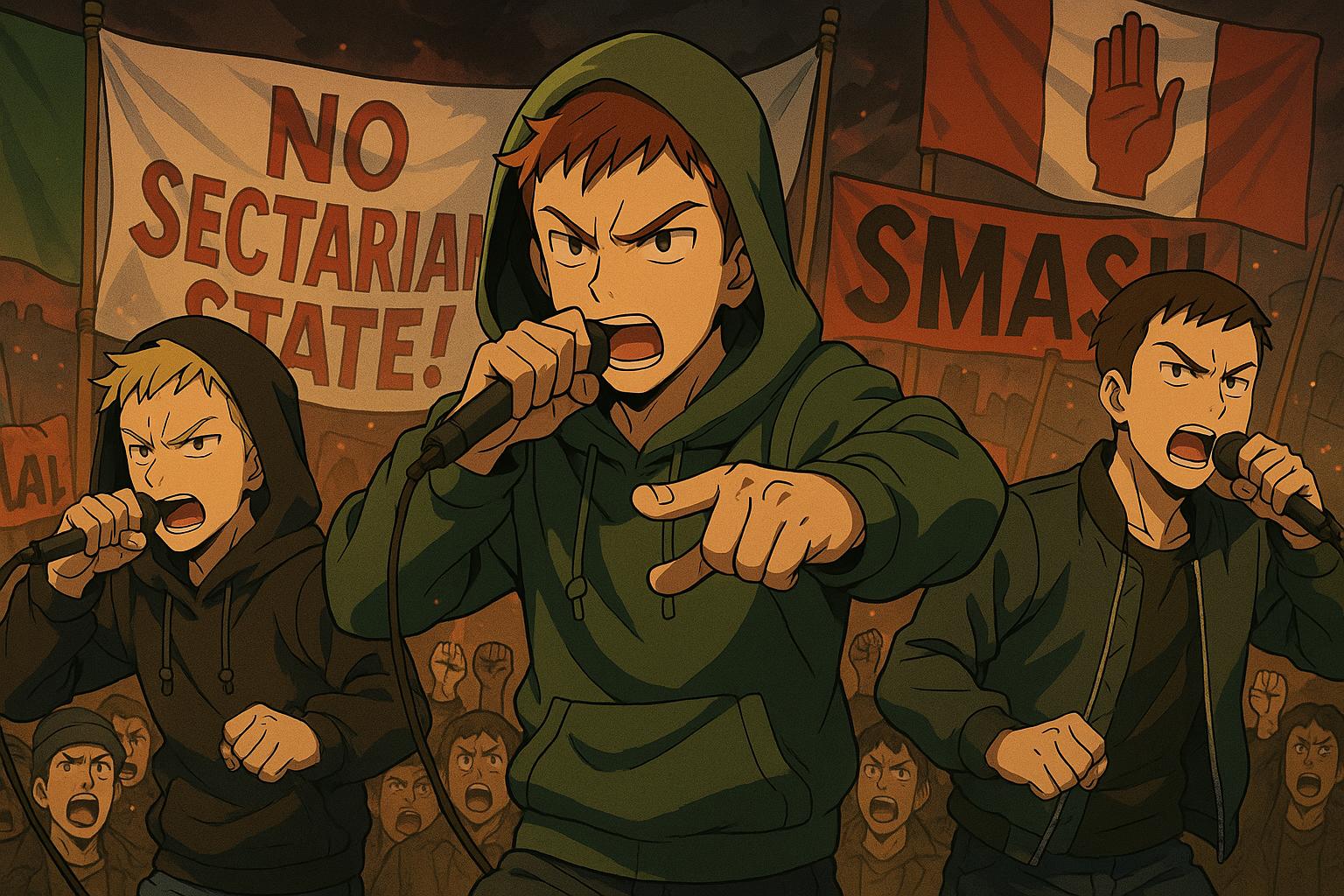The Northern Irish rap trio is again stirring the pot, this time by brazenly mocking law enforcement, government officials, and even the late former Prime Minister Margaret Thatcher during a recent performance. This provocative display comes amidst serious legal troubles for one of the band’s members, who faces a charge under the Terrorism Act for allegedly waving a flag associated with the proscribed militant group Hezbollah during a concert.
Performing at the iconic 100 Club in London, the trio encouraged their sold-out audience to chant “Free Palestine” while launching into a raucous rendition of “Maggie’s in a box,” set to the tune of a classic. This was not the first time the group had invoked Thatcher’s name; similar chants echoed during their notorious outing at Coachella. Footage of these politically charged antics—filled with pro-Palestinian sentiments—resulted in the temporary censorship of their live stream, illustrating the precarious landscape artists navigate when engaging in overt political commentary, especially in today’s changing political climate.
The group, comprising Mo Chara, DJ Próvaí, and Moglai Bap, has faced mounting backlash in recent months. Following Mo Chara—real name Liam Ó hAnnaidh—arrest on charges for displaying the Hezbollah flag at a previous gig, they have sought to frame their legal troubles as an attack on freedom of expression. Upon taking the stage last Thursday, Ó hAnnaidh directly addressed law enforcement officials present, insinuating that they were merely profiting from an ineffective role. “There’s a lot of police inside this venue tonight; they’re making a lot of money for doing f*** all,” he declared.
Their latest track, "The Recap," also takes aim at the leader of the Conservative Party, insinuating that her attempts to block their arts funding are tied to the party's electoral decline. As the new Labour government shifts policies, many are questioning the influence of such inflammatory rhetoric on political stability. Critics believe that the band’s antics should disqualify them from performing at major festivals, with shadow figures suggesting their performances celebrate terrorism.
In a world increasingly scrutinising music as a medium for political dissent, this trio stands at the centre of heated discourse. Their politically charged performances, compounded by legal scrutiny leading to bans from various venues, have drawn alarm across the political spectrum. Videos reportedly capturing members of the band calling for violence, such as “the only good Tory is a dead Tory,” further expose the rift in public opinion. Even as they issue apologies to families of assassinated MPs, the trio insists their messages are misrepresented by political figures seeking to discredit them.
Defending their artistic expressions, the group claims that the charges against them signify a broader attempt to silence dissenting voices regarding global injustices, especially in light of the Labour government’s stance on the ongoing conflict in Gaza. They argue that their messages of resistance resonate deeply within a tradition of rebellious artistry that challenges the status quo.
Looking ahead, their appearances at notable festivals, including Glastonbury, remain the subject of intense scrutiny, with escalating calls for their cancellation among those opposed to their views. However, their following appears undeterred; tickets for their upcoming shows in Belfast sold out rapidly, highlighting a growing appetite for provocative music and political discourse at a time when civil liberties are under fire. In this shifting political landscape, the need for nuanced discussion about artistic freedom and its implications is more critical than ever.
Source: Noah Wire Services
